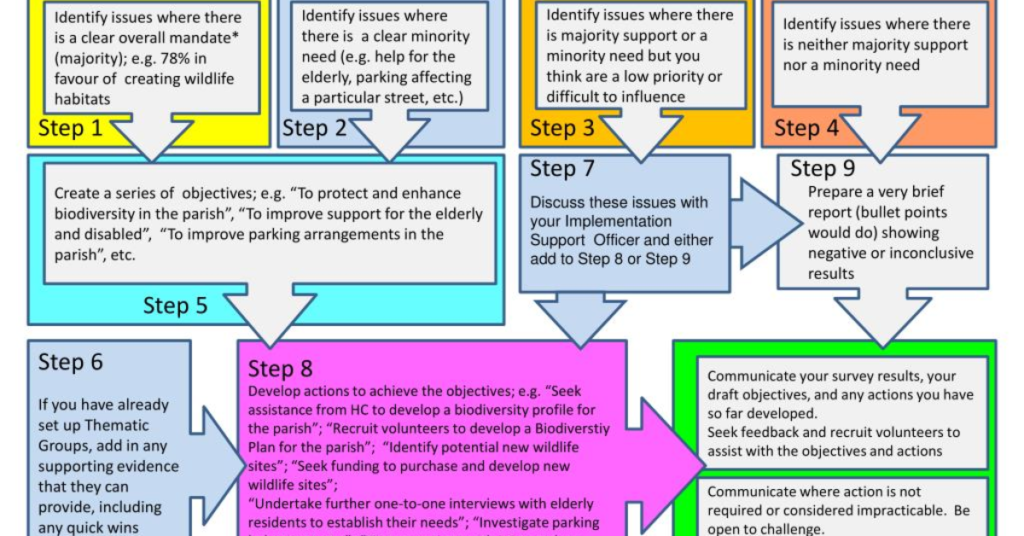Establishing residency in a home involves physically residing in the property for a significant period and demonstrating intent to make it a permanent domicile, typically through factors like utility bills, voter registration, and official documentation. This process is crucial for legal purposes, including taxation, voting rights, and access to local services.
Ever wondered what makes a place your legal home? Dive into the world of residency establishment and rental awareness with us. Learn about the key factors like utility bills and official documentation that determine your legal domicile. Ready to navigate the nuances of calling a place “home”? Let’s explore together!
Legal Definition Of Residency In A Home

Residency Basics:
- Residency involves physically living in a property for an extended period.
- It’s essential for various legal matters like taxation and voting rights.
Key Factors:
- Utility bills and lease agreements are primary indicators of residency.
- Voter registration and official documentation also establish residency.
Proof of Intent:
- Intent to make the property a permanent domicile is crucial.
- This can be demonstrated through actions like changing mailing addresses.
Legal Implications:
- Residency status affects taxation and eligibility for local services.
- It’s also necessary for enrolling children in local schools.
Consulting Experts:
- Legal professionals can provide guidance on establishing residency.
- They can help navigate the complexities of residency laws and requirements.
Outline Of Legal Requirements For Establishing Residency

Establishing residency can significantly impact an individual’s rights and entitlements, such as voting rights, access to social services, and eligibility for in-state tuition. This process is crucial for accessing various benefits and privileges within a particular jurisdiction.
Consider the following legal prerequisites:
- Valid proof of residency demands documentation like lease agreements, utility bills, or driver’s licenses.
- Residency establishment holds significant importance for tax obligations, as most states mandate state income tax payments from residents.
- Some states impose residency waiting periods, varying from a few weeks to several months.
Various scenarios may influence residency status:
- If an individual relocates to a new state for work but plans to return to their previous residency, they may retain their former state residency.
- Conversely, renting out one’s home and moving to another state might render them without residency in either location if insufficient time is spent in either.
- Individuals with multiple residences must demonstrate clear intent to designate one as their primary domicile to establish residency.
Remember, understanding and fulfilling residency requirements are essential for legal and practical purposes tailored to your circumstances.
What do you need to know about the tenancy agreement?

Tenancy is governed by the formal document known as the ‘Tenancy Agreement,’ which must be registered with the Rent Registrar. This agreement solidifies the relationship between landlord and tenant, primarily through the payment of rent.
This arrangement entails specific rights and responsibilities for both parties. Landlords are obligated to provide tenants with a written tenancy agreement before renting out a property, as verbal agreements hold no legal weight. Therefore, it’s crucial to request a certified and registered Tenancy Agreement for any residential or commercial tenancy arrangement.
What are the contents of the tenancy agreement
The contents of a tenancy agreement typically include crucial details outlining the terms and conditions of the rental arrangement between the landlord and tenant.
This document typically covers aspects such as the names of the parties involved, the property address, duration of the tenancy, rental payment details, deposit amount, responsibilities of both parties regarding property maintenance and repairs, rules regarding pets, subletting, and termination conditions.
Additionally, it may outline any specific clauses or provisions agreed upon by both parties, ensuring a clear understanding and mutual agreement throughout the tenancy period.
What are the contents of the tenancy agreement?
1. Parties Involved: The agreement identifies the landlord and tenant by name and contact information, ensuring clarity on the involved parties.
2. Property Description: It includes a detailed description of the rented property, specifying its address, unit number, and any relevant details.
3. Term of Tenancy: This section outlines the duration of the tenancy, including the start and end dates, whether it’s a fixed-term or periodic tenancy.
4. Rent Details: The agreement specifies the rent amount, payment frequency, due date, and acceptable payment methods.
5. Security Deposit: It outlines the amount of the security deposit, conditions for its return, and any deductions that may be made.
6. Rights and Responsibilities: This part delineates the rights and responsibilities of both the landlord and tenant, covering issues like property maintenance and repairs.
What are your rights in case the landlord increases your rent?
Facing a rent increase can be daunting, but it’s important to know your rights as a tenant. Firstly, check your lease agreement to understand if there are any clauses regarding rent adjustments. Typically, landlords must provide written notice of a rent increase within a certain timeframe, which varies depending on local laws.
However, some jurisdictions may impose restrictions on how much and how often landlords can raise rent. If you believe the increase is unfair or unjustified, you may have the right to negotiate with your landlord or challenge the increase through legal channels.
Seeking advice from a tenant advocacy organization or legal professional can help you understand and assert your rights effectively. Remember, being informed and proactive is key to navigating rent increases as a tenant.
Can the landlord evict the tenant from the rented property?
Yes, a landlord can evict a tenant from a rented property under certain circumstances. These circumstances typically include non-payment of rent, violation of lease terms, or engaging in illegal activities on the premises.
However, landlords must follow specific legal procedures and provide proper notice before initiating an eviction. Tenants also have rights and protections, such as the right to contest an eviction in court and the right to adequate notice.
It’s essential for both landlords and tenants to understand their respective rights and responsibilities outlined in the lease agreement and local tenancy laws. Seeking legal advice can help navigate the eviction process effectively and fairly for both parties involved.
Can the landlord visit the rented property whenever he/she wants?
As a tenant, it’s essential to understand your rights regarding landlord visits to the rented property. In most jurisdictions, landlords are legally required to provide notice before entering the premises, typically 24 to 48 hours in advance. This notice allows tenants to prepare and ensures their privacy is respected.
However, there may be exceptions in emergency situations or if specified otherwise in the lease agreement. It’s crucial to review your lease and familiarize yourself with local tenant laws to know your rights and responsibilities regarding landlord visits.
If you have concerns or questions, don’t hesitate to communicate with your landlord or seek advice from a legal expert or tenant advocacy organization. Understanding your rights can help maintain a positive landlord-tenant relationship and ensure your living situation is comfortable and respectful.
Can the landlord unilaterally terminate the tenancy agreement?
In most cases, landlords cannot unilaterally terminate a tenancy agreement without valid reasons and following proper legal procedures. However, laws regarding this issue vary by jurisdiction, so it’s crucial to consult local regulations.
Generally, landlords can terminate a tenancy agreement for reasons like non-payment of rent, violation of lease terms, or the landlord’s intent to occupy the property themselves. Even in such cases, landlords must provide tenants with proper notice as stipulated by law.
Tenants have rights and protections under rental laws, including the right to dispute unfair eviction attempts. Seeking legal advice or contacting tenant advocacy organizations can help tenants understand and protect their rights in such situations.
It’s important for both landlords and tenants to be aware of their respective rights and responsibilities to maintain a fair and harmonious landlord-tenant relationship.In most cases, landlords cannot unilaterally terminate a tenancy agreement without valid reasons and following proper legal procedures.

Laws regarding this issue vary by jurisdiction, so it’s crucial to consult local regulations. Generally, landlords can terminate a tenancy agreement for reasons like non-payment of rent, violation of lease terms, or the landlord’s intent to occupy the property themselves. Even in such cases, landlords must provide tenants with proper notice as stipulated by law.
Tenants have rights and protections under rental laws, including the right to dispute unfair eviction attempts. Seeking legal advice or contacting tenant advocacy organizations can help tenants understand and protect their rights in such situations.
It’s important for both landlords and tenants to be aware of their respective rights and responsibilities to maintain a fair and harmonious landlord-tenant relationship.In most cases, landlords cannot unilaterally terminate a tenancy agreement without valid reasons and following proper legal procedures.
However, laws regarding this issue vary by jurisdiction, so it’s crucial to consult local regulations. Generally, landlords can terminate a tenancy agreement for reasons like non-payment of rent, violation of lease terms, or the landlord’s intent to occupy the property themselves.
Even in such cases, landlords must provide tenants with proper notice as stipulated by law. Tenants have rights and protections under rental laws, including the right to dispute unfair eviction attempts.
Seeking legal advice or contacting tenant advocacy organizations can help tenants understand and protect their rights in such situations. It’s important for both landlords and tenants to be aware of their respective rights and responsibilities to maintain a fair and harmonious landlord-tenant relationship.
Frequently Asked Questions For What Establishes Residency In A Home?
What establishes residency in a home in Michigan?
In Connecticut, residency in a home is established by physically living in the property and demonstrating intent to make it a permanent domicile.
What establishes residency in a home in Missouri?
In Missouri, residency in a home is typically established by physically living in the property and demonstrating intent to make it a permanent domicile.
What are the What establishes residency in a home in CT?
In CT, residency in a home is established through factors like physical presence, utility bills, and official documentation.
residency laws in Ohio?
Residency laws in Ohio regulate tenant-landlord relationships and define the rights and responsibilities of both parties.
conclusion
In conclusion, establishing residency in a home involves both physical presence and intent to make the property a permanent domicile. Key factors such as utility bills, voter registration, and official documentation play a crucial role in proving residency status. Understanding these factors is essential for tenants to protect their rights and for landlords to ensure compliance with rental laws.
Furthermore, navigating rental awareness empowers individuals to make informed decisions about their housing situations. By familiarizing themselves with residency requirements and legal obligations, both landlords and tenants can foster transparent and mutually beneficial rental agreements. Ultimately, fostering awareness of residency standards promotes fairness and stability in the rental market, contributing to harmonious landlord-tenant relationships.







